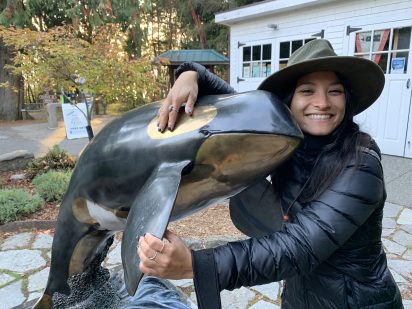
Q&A with Gabriela Dunn
Why did you decide to pursue a Master of Marine Affairs?
After 8 years of working in the environmental sphere—working in ecotourism, high school education, environmental consulting, and in the National Park Service—I felt my skills and knowledge had plateaued and I needed to finally pursue a Master’s degree so that I would have greater capacity as a leader to integrate large-scale ecosystem health, community and culture, environmental justice, and climate adaptation.

Q&A with Olivia Horwedel
Why did you decide to pursue a Master of Marine Affairs?
I decided to pursue a Master of Marine Affairs because I was really looking to pursue an interdisciplinary graduate career. After I graduated from the University of Michigan, I worked seasonal positions across the United States. Many of these experiences allowed me to explore various disciplines within marine ecology, from research to education and outreach.

Q&A with Dr. Yoshitaka Ota
How would you describe yourself as an undergraduate student?
Not quiet. Challenging but modest and scared.
When and how did you discover your passion/interest in marine and environmental affairs?
Mostly through working with fishers in various places and found they are not always in the best position to be part of solution, which felt not just.
Did you have any mentors who guided you along your educational pathway?

Q&A with Isabel Jamerson
Why did you decide to pursue a master of marine affairs?
Growing up on Puget Sound, coastal environments have always been dear to me. They were my favorite playgrounds, inspired curiosity, and motivated my stewardship. While studying Conservation Biology at Middlebury College, I worked as an environmental educator in places like Alaska, the Bahamas, and California, further fostering my love for marine environments and communities.
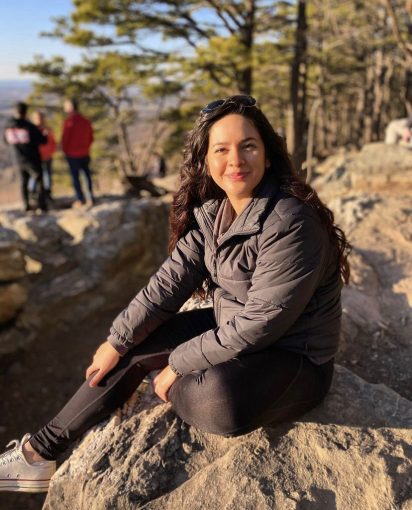
Q&A with Lucia Davids
Describe your experience in applying to and selecting a graduate program.
I was initially very methodical with applying to graduate schools. I had various checklists of what I was looking for in a program, I had a pros and cons board of the different schools that I was looking into, and I wanted to be as proactive as possible with reaching out to professors and potential advisors to get a feel for whether I might be a good match for someone’s lab.
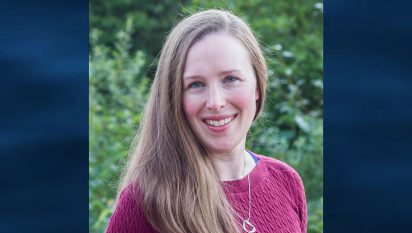
Q&A With Dr. Anne Beaudreau
Why did you decide to become a professor?
I began applying for faculty positions after a phase of my postdoc that involved a lot of solitary time writing R code. I realized that as much as I enjoyed research, my sense of purpose was in sharing a love of discovery and learning with others. Doing research with my students is among the greatest joys of my job.

Q&A with Leah Huff
Why did you decide to pursue a Master of Marine Affairs?
When applying to graduate school, I was interested in studying climate change from a social science perspective. This is something that I started researching during my undergraduate studies and I was interested in finding a graduate program that would allow me to continue that research.
Describe your experience in applying to and selecting a graduate program.

Q&A with Aileen San
Why did you decide to pursue a Master of Marine Affairs?
I have wanted to study marine science since I was a young child. My dad took me fishing with him quite often when I was young so I was exposed to the ocean and marine life quite early. I was also exposed to fishing regulations at that age because I was tasked with translating fishing regulations for my dad since he couldn’t read or speak English.
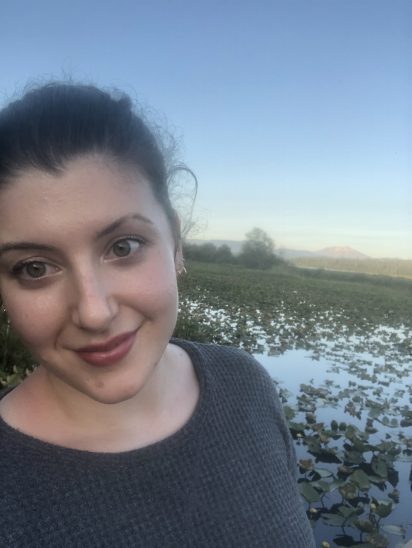
Q&A Nikki Canning
Describe your experience in applying to and selecting a graduate program.
I decided to get my master’s through reading postings for jobs with the Washington Department of Ecology. I knew it was the sort of work I wanted to transition into and saw that a master’s would help make me more competitive for entry-level positions and give me an edge as my career progressed.
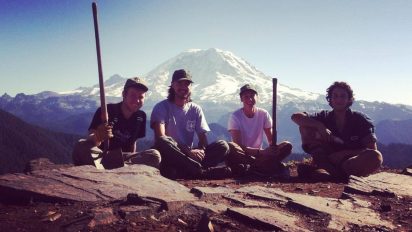
Q&A with Robinson Low
Describe your experience in applying to and selecting a graduate program.
I first applied to SEFS and SAFS without success. Although, I will say I didn’t apply myself very well and I’m not sure I was mentally ready to go back to school. I graduated undergrad in 2015 and took a few years off working before diving back into the academic world.